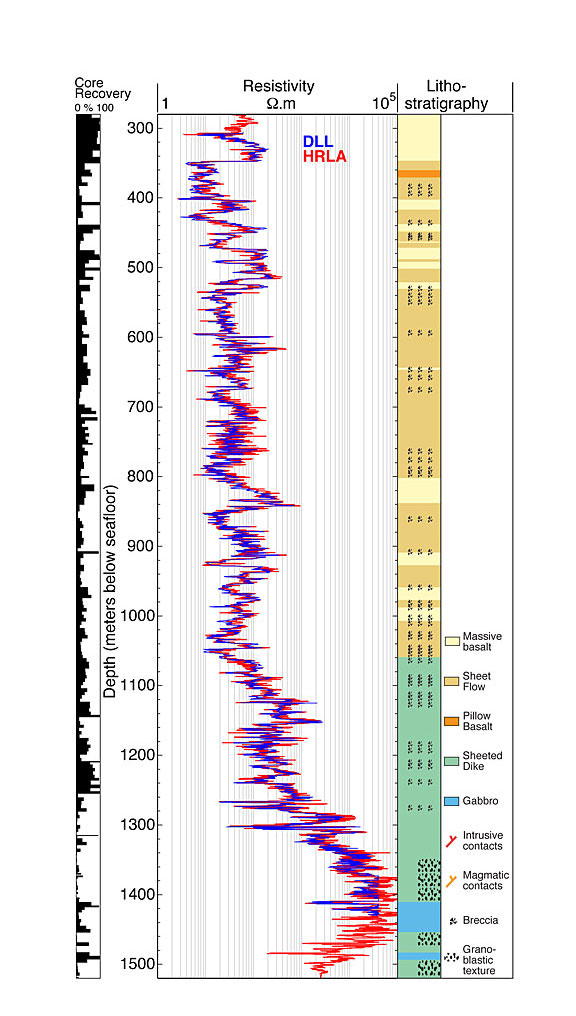High-Resolution Laterolog Array Tool (HRLA*)
Description
The High-Resolution Laterolog Array (HRLA) tool provides six resistivity measurements with different depths of investigation (including the borehole, or mud resistivity, and five measurements of formation resistivity with increasing depth of penetration into the formation). The sonde sends a focused current into the formation and measures the intensity necessary to maintain a constant drop in voltage across a fixed interval, providing direct resistivity measurement. The array has one central (source) electrode and six electrodes above and below it, which serve alternately as focusing and returning current electrodes. By rapidly changing the role of these electrodes, a simultaneous resistivity measurement at 6 penetration depths is achieved. The tool is designed to ensure that all signals are measured at exactly the same time and same tool position, and to reduce the sensitivity to “shoulder bed” effects when crossing sharp beds thinner than the electrode spacing. The design, which eliminates the need for a surface reference electrode, improves formation resisitivity evaluation compared to the traditional dual laterolog sonde (DLL).
Applications
Primary porosity. Because of the inverse relationship between resistivity and porosity, the HRLA can be used to compute the porosity of the rock from Archie’s equation if the sediments/rocks do not contain any clay or if the contribution of surface conduction to the signal is negligible.
Fracture porosity. This can be estimated from the separation between the deep and shallow measurements based on the observation that the former is sensitive to the presence of horizontal conductive features only, while the latter responds to both horizontal and vertical conductive structures.
Log Presentation
Tool Specifications
| Temperature rating: | 300° F (150° C) |
| Pressure rating: | |
| Diameter: | 3.625 in (9.21 cm) |
| Length: | 24.1 ft (7.35 m) |
| Weight: | 394 lbs (178.7 kg) |
Measurement Specifications
| Vertical resolution: | 12 in. (30.48 cm) |
| Depth of investigation: | 50 in. |
| Sampling rate: | 2 in. at 3600 ft/hr logging speed |
Major Outputs
| RLA1: | Apparent resistivity from Computed Focusing Mode 1 |
| RLA2: | Apparent resistivity from Computed Focusing Mode 2 |
| RLA3: | Apparent resistivity from Computed Focusing Mode 3 |
| RLA4: | Apparent resistivity from Computed Focusing Mode 4 |
| RLA5: | Apparent resistivity from Computed Focusing Mode 5 |
| RM_HRLT: | Computed Mud Resistivity |
| RT_HRLT: | True Formation Resistivity |
Deployment Notes
The HRLA is typically deployed with the APS, HLDS and HNGS tools. It is compatible with a wide variety of tools, except the FMS. Unlike the DIT, which can be mounted only at the bottom of the tool string, the HRLA can be run higher in the string, should it be necessary to combine it with a bottom-only tool such as the MSS.
* ®trademark of Schlumberger

